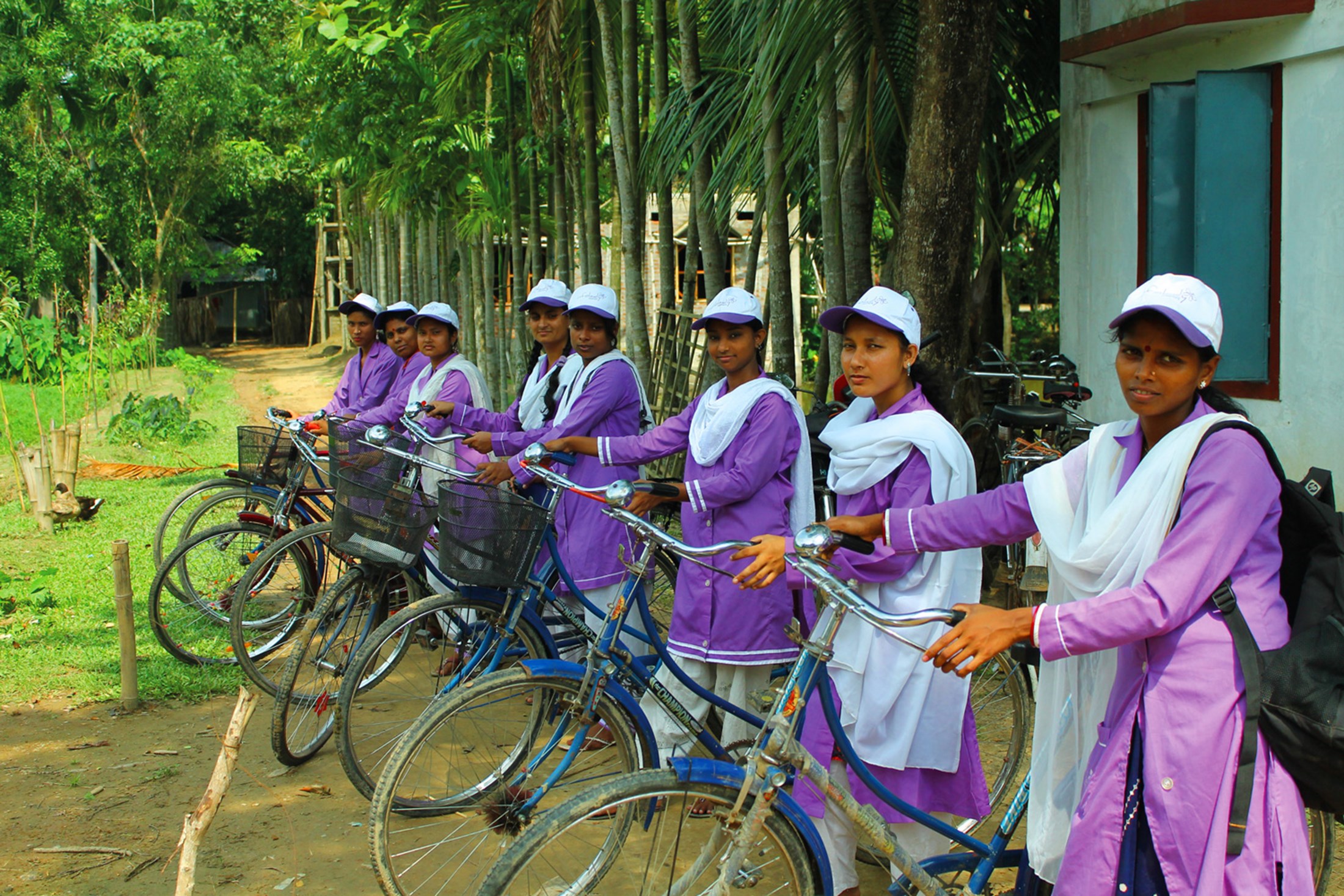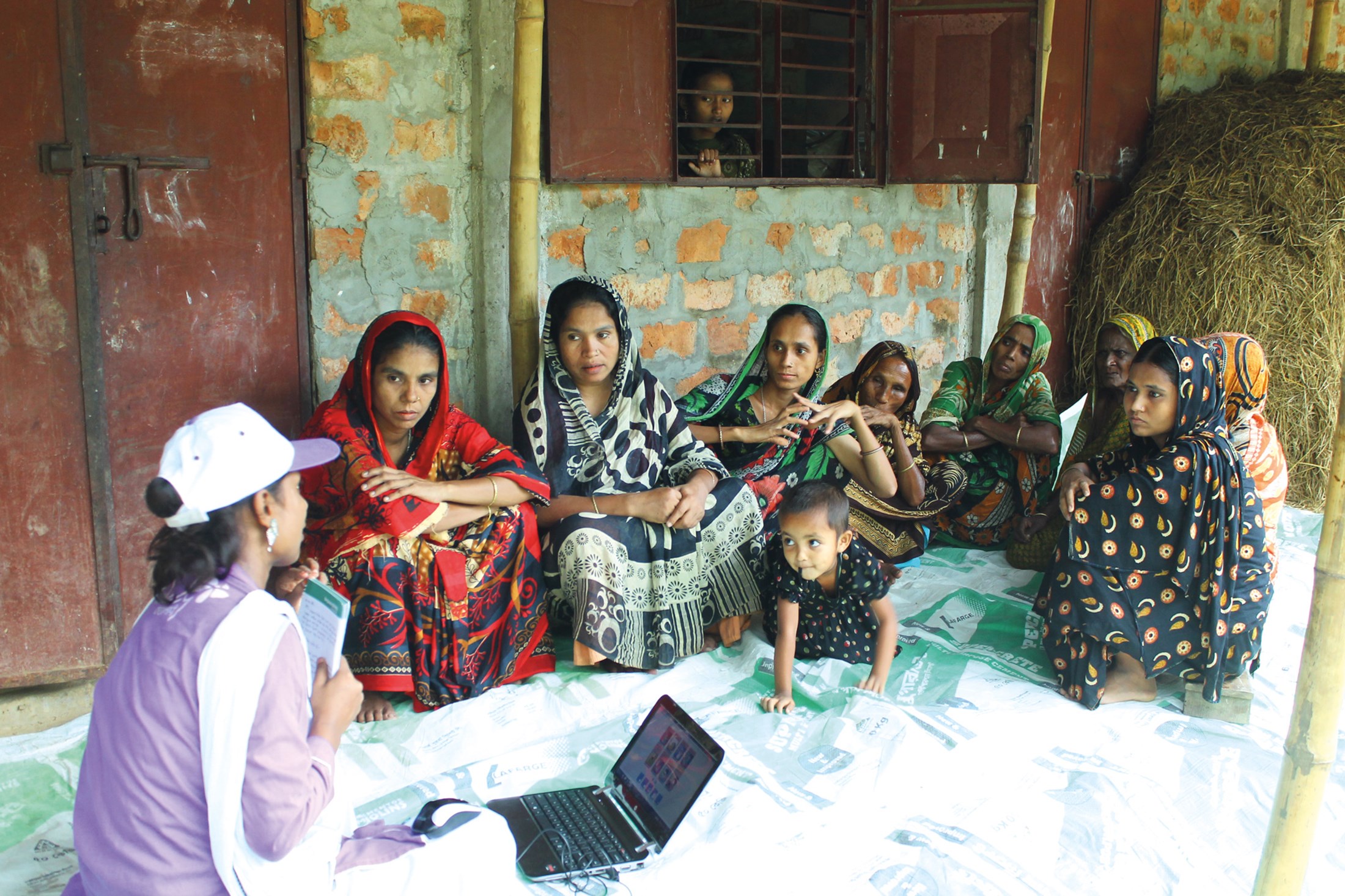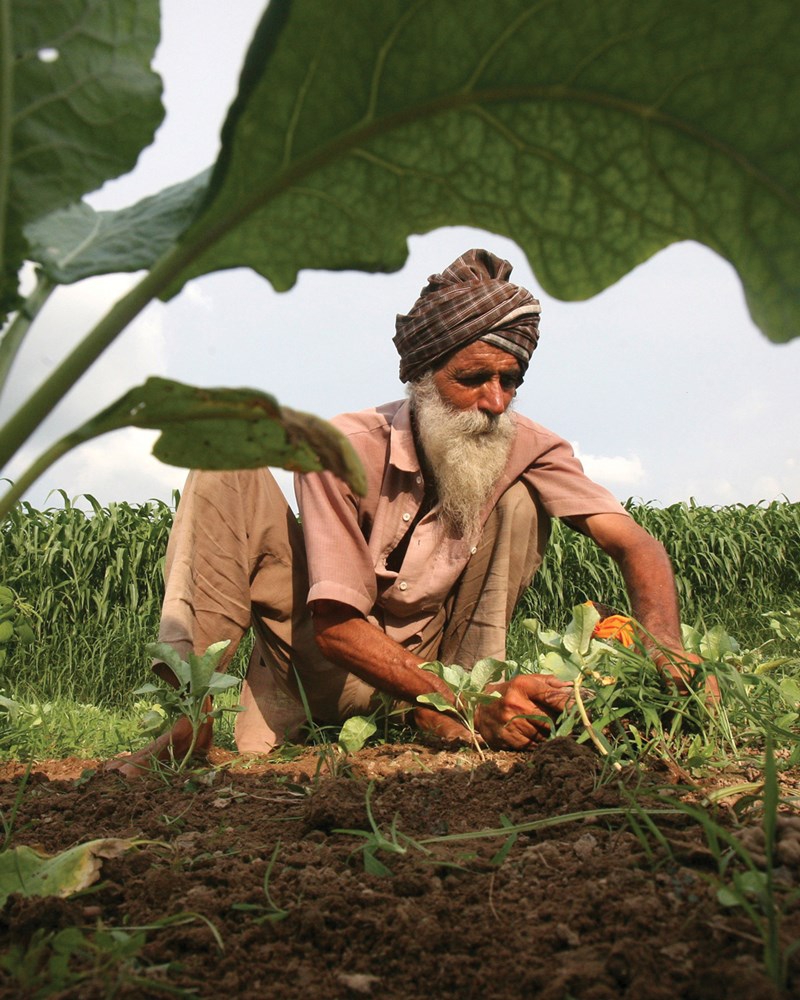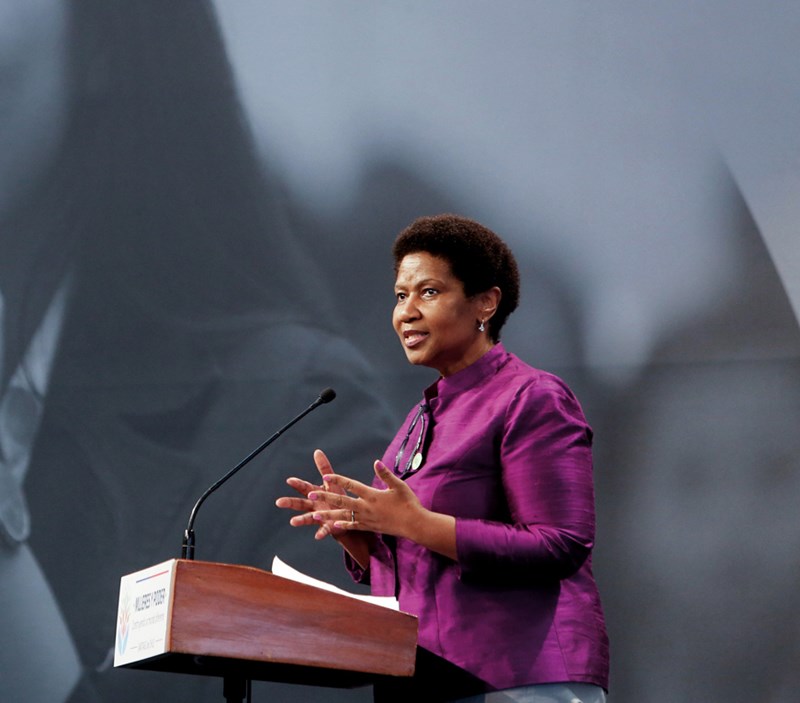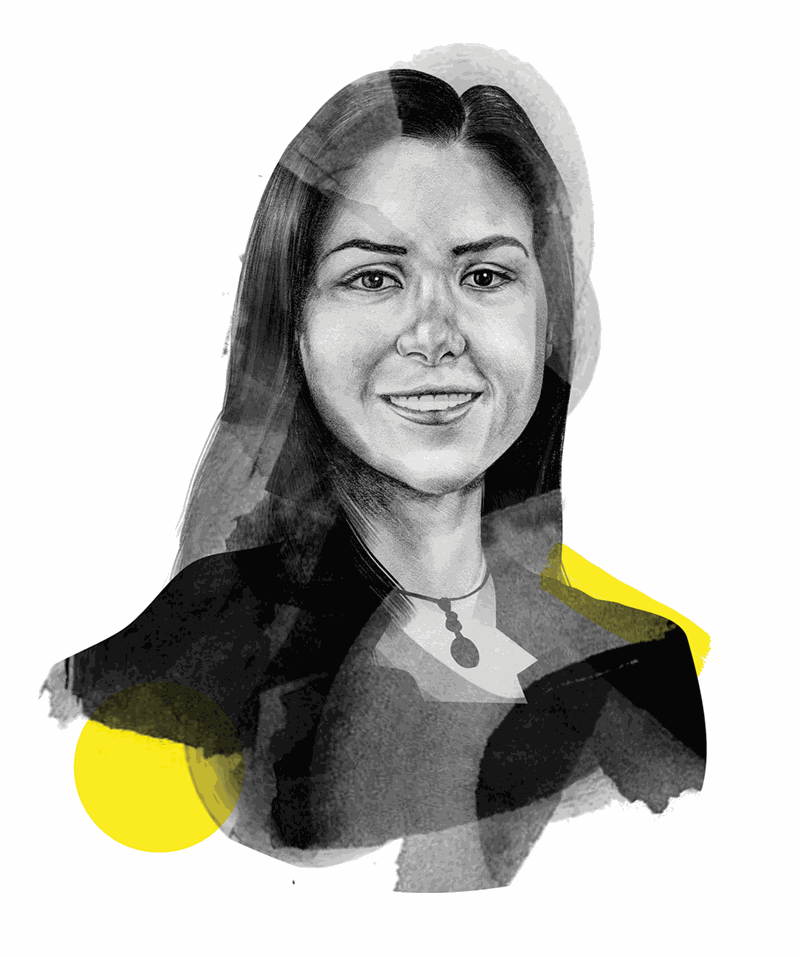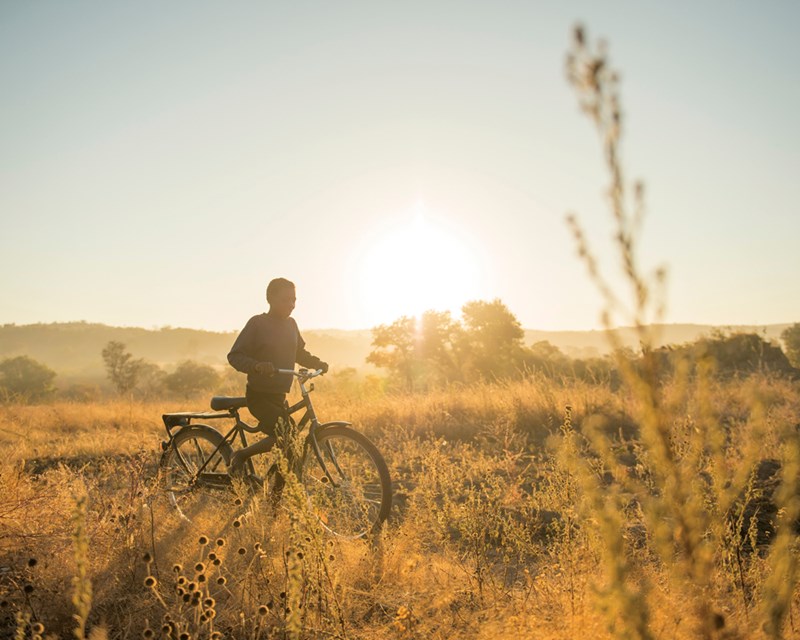At just 21, Soma Khatun is an entrepreneur. Her customers wait anxiously for the ring of her bicycle bell, her purple and white uniform distinct against the lush green fields of the village. The sound heralds the arrival of high-tech equipment by low-tech means: a laptop, digital camera and medical testing kits, carried by bicycle, that connect remote, rural Bangladesh communities to the world.
Soma is the Infolady for eight villages north-east of Bangladesh’s capital, Dhaka. She visits each village three times a week, cycling between communities. The service she provides offers a vital lifeline to many villagers, but they are not the only ones to benefit.Being an Infolady has given this housewife-turned-entrepreneur her independence, dignity and an income.
“Once I was an ordinary housewife. Nobody knew me,” she says. “Now everyone eagerly waits every day for me. This is my proudest moment.”
Soma is one of 50 Infoladies, trained and supported by Bangladesh-based social enterprise Dnet. The programme, which was piloted over a number of years before its launch in 2010, aims to tap into rising levels of telecoms connectivity in rural Bangladesh.
This technology has the potential to empower impoverished and remote populations – if only these communities had the equipment to make use of it. With an eye on the growing number of educated young women in these communities, executive director Ananya Raihan saw an opportunity.
“The Infolady model includes women on both the supply and demand side,” he says, explaining its ‘women for women’ approach. “They have better access to rural households, so it’s the best approach for creating jobs and autonomy for women.”
The benefit, he adds, for women living in conservative areas, and prohibited culturally from travelling to access services, is clear.
“We hope to close the gap that exists for villagers,” says Laura Mohiuddin, head of the Infolady programme. “People living in remote villages don’t have access to the internet and many cannot afford or operate a laptop.”
This gap is what gave rise to the idea behind Infolady, she says: if people cannot access technology, then technology needs to travel to them.

